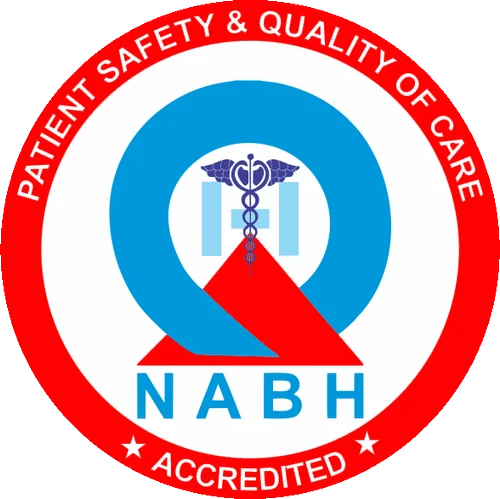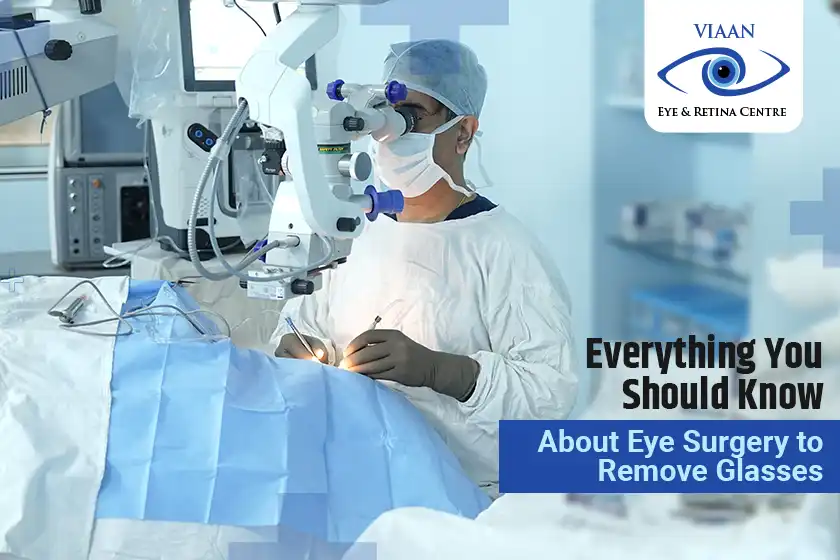Eye surgery to remove glasses is a popular solution for people who are tired of relying on spectacles or contact lenses. Whether it’s for cosmetic reasons, convenience, or simply to improve quality of life, the idea of waking up and seeing the world clearly without reaching for glasses is highly appealing. In this blog, we’ll dive deep into everything you need to know about the various surgical options, the benefits, risks, and what you can expect during the process.
Why Consider Eye Surgery to Remove Glasses?
Let’s face it: glasses can be a hassle. From fogging up when you step out of an air-conditioned room to constantly cleaning them or misplacing them, they’re not always the most convenient accessory. Contact lenses, while less noticeable, come with their own set of issues such as dry eyes, infections, and constant maintenance. That’s why eye surgery to remove glasses is seen as a game-changer. But before you jump into surgery, it’s essential to understand the types of procedures available, their effectiveness, and whether you’re a good candidate.
Types of Eye Surgery to Remove Glasses
There are several types of refractive surgeries available, each designed to correct vision issues such as nearsightedness, farsightedness, and astigmatism. Here’s a quick overview of the most common options:
1. LASIK (Laser-Assisted In Situ Keratomileusis)
The most well-known procedure, LASIK, reshapes the cornea using a laser. This allows light entering the eye to focus properly onto the retina, resulting in clearer vision. The surgery is quick and relatively painless, with most people experiencing improved vision within 24 hours.
2. PRK (Photorefractive Keratectomy)
PRK is similar to LASIK, but instead of creating a flap in the cornea, the outer layer of the cornea is removed. While the recovery time is slightly longer, PRK is an excellent option for people with thin corneas.
3. SMILE (Small Incision Lenticule Extraction)
A newer procedure, SMILE, involves making a small incision in the cornea and removing a lenticule (a small piece of tissue) to reshape the cornea. It’s minimally invasive and boasts a faster recovery time compared to LASIK or PRK.
4. ICL (Implantable Collamer Lens)
For those who may not be candidates for laser surgery due to high prescriptions or thin corneas, ICL is a great alternative. A special lens is implanted in front of the natural lens of the eye to correct vision.
Are You a Good Candidate for Eye Surgery to Remove Glasses?
Not everyone is a suitable candidate for eye surgery to remove glasses. Factors like age, corneal thickness, eye health, and the stability of your prescription all play a role in determining your eligibility. Generally, candidates should be over 18, have a stable prescription for at least a year, and have healthy corneas. People with conditions like glaucoma, cataracts, or severe dry eyes may not be suitable for refractive surgery. A thorough eye exam and consultation with an ophthalmologist will help determine the best course of action for your vision correction.
The Benefits of Eye Surgery to Remove Glasses
Now, let’s talk about why people love these procedures. The most obvious benefit is the freedom from glasses or contact lenses. No more worrying about your glasses falling off during a workout or struggling with contacts while traveling. Your vision becomes more natural and convenient. Eye surgery also improves self-confidence, especially for those who feel self-conscious wearing glasses. Plus, many people find they can engage in activities like swimming or sports more freely post-surgery.
Another advantage is the long-term financial savings. While the upfront cost of eye surgery to remove glasses may seem steep, think of the money you’ll save over time on new glasses, contact lenses, and cleaning solutions.
Risks and Considerations
Like any surgery, eye surgery to remove glasses carries potential risks. Common side effects include dry eyes, glare, halos, and fluctuating vision. Most of these side effects are temporary, but in rare cases, they can be long-term. There’s also the chance that the surgery won’t fully correct your vision, meaning you might still need glasses for specific tasks like night driving or reading.
Additionally, the recovery period can vary depending on the procedure. While LASIK patients often see improvements within 24 hours, PRK or SMILE patients may take a few days or weeks to fully recover. Your ophthalmologist will provide detailed instructions on aftercare, which might include using eye drops and avoiding strenuous activities for a short period.
What to Expect During the Procedure
The thought of eye surgery can be daunting, but the procedures themselves are typically quick and relatively painless. Most surgeries, like LASIK, take around 30 minutes or less. You’ll be awake during the procedure but given numbing eye drops to ensure you don’t feel any pain. While the laser is in use, you might experience some pressure or a mild sensation, but discomfort is minimal.
Once the surgery is done, you’ll need someone to drive you home as your vision will be blurry at first. Most people notice a significant improvement in their vision within a day or two, but full recovery can take several weeks depending on the procedure.
Post-Surgery Care
Post-surgery care is crucial to ensure a smooth recovery. Your doctor will likely prescribe medicated eye drops to prevent infection and reduce inflammation. You’ll also need to avoid rubbing your eyes, swimming, or exposing your eyes to dust and smoke for a few weeks. Regular follow-up appointments are essential to monitor your healing and vision improvements.
Final Thoughts
Deciding to undergo eye surgery to remove glasses is a personal choice that requires careful consideration. While the idea of never needing glasses or contacts again is enticing, it’s essential to weigh the pros and cons, discuss your options with an eye specialist, and determine the best procedure for your unique needs.
If you’re interested in exploring whether eye surgery to remove glasses is right for you, you can consult with the experts at Viaan Eye & Retina Centre best eye hospital in Delhi NCR. Our team of experienced professionals can guide you through the process and help you to remove glasses and give you better solutions for healthy vision throughout.



